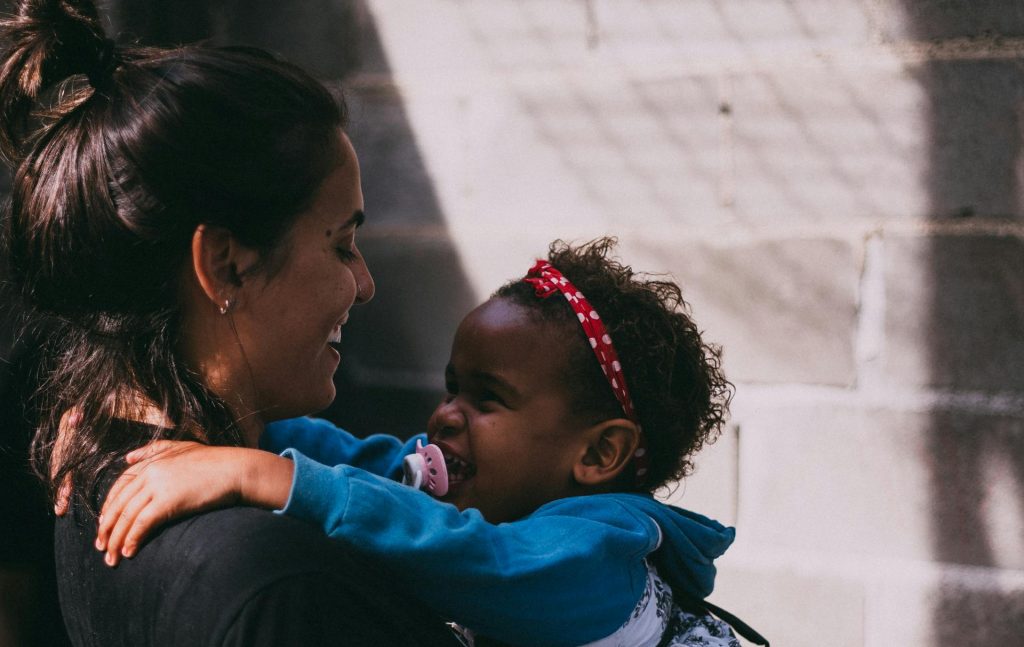Vice President Kamala Harris has reintroduced the pressing issue of affordable child care into the national spotlight, advocating for a cap on childcare costs at 7% of a family’s income. This proposal, which aligns with the Biden administration’s earlier attempts at childcare reform, aims to relieve the financial strain that millions of working families face when balancing employment and child care. Although Harris’ plan lacks specific implementation details, it echoes a key component of President Biden’s original “Build Back Better” initiative, which sought to limit childcare costs for families across the nation.
The growing burden of childcare costs has become a critical issue for many American families. According to data from 2023, the average cost of childcare for two children now surpasses housing expenses in 11 states. For a married couple, child care represents about 10% of the household income, while for single parents, the figure jumps to an alarming 32%. The financial strain is particularly severe for low-income families, many of whom are already struggling to make ends meet.

Harris’s proposal is not entirely new; it reflects ongoing efforts within the Biden administration to address the skyrocketing costs of child care. Earlier this year, the administration enacted a rule capping childcare expenses at 7% for low-income families who receive federal subsidies. The rule was designed to reduce costs for roughly 100,000 children and to encourage more childcare providers to participate in federal grant programs.
However, the broader goal of child care reform, as envisioned in the “Build Back Better” package, faced significant opposition in Congress. The original plan aimed to limit childcare costs to no more than 7% of income for families with children under six, expanding access to millions of children. The proposal also included a universal pre-kindergarten provision, but the entire package—estimated to cost $382 billion—was blocked by Congress, leaving many families without the relief they had hoped for.
Harris’ renewed call for childcare reform comes at a time when the political landscape surrounding this issue remains divided. While childcare costs are widely recognized as a significant challenge for working families, the solutions proposed by Republicans differ substantially from Harris’ approach. Former President Donald Trump, for instance, recently suggested that revenue from his proposed tariff hikes could alleviate childcare expenses, though he did not provide details on how this would work. Senator JD Vance has also weighed in on the issue, advocating for a reduction in government regulations and certification requirements for childcare workers. Vance’s suggestion to encourage family members to step in and assist with child care has drawn mixed reactions, with some praising the idea and others questioning its feasibility for families without extended support systems.
While the approaches differ, Harris’ proposal has gained traction among childcare advocates. Melissa Boteach, Vice President of Child Care and Income Security at the National Women’s Law Center Action Fund, noted that Harris has long been a strong champion of childcare reform. Boteach expressed support for the 7% cap, describing it as an essential step toward making child care more affordable for working families while also ensuring that childcare providers receive fair wages for their labor.
The childcare crisis in the U.S. is not a new issue, but the urgency has intensified in recent years as costs have continued to rise. The financial burden of child care has grown so severe that many parents are forced to choose between staying home with their children or paying for care that consumes a significant portion of their income. This dynamic is particularly challenging for single parents, who often lack the support systems that could make child care more affordable or accessible.
The high cost of child care has ripple effects throughout the economy, impacting not only families but also employers and the broader labor market. Parents who cannot afford child care are often forced to reduce their work hours or leave the workforce altogether, leading to lost productivity and income. This trend disproportionately affects women, who are more likely to take on caregiving responsibilities in the absence of affordable childcare options.
In addition to the financial strain, the childcare crisis also raises questions about the quality of care that children receive. Many childcare providers operate on razor-thin margins, making it difficult for them to offer competitive wages to their staff or invest in quality improvements. Harris has emphasized the importance of ensuring that childcare workers are fairly compensated for their work, which she describes as essential to the well-being and development of young children.
The Biden administration’s efforts to address the childcare crisis reflect a broader commitment to supporting working families, but the political challenges remain significant. With Congress divided on the issue, it is unclear whether Harris’ proposal for a 7% cap will gain the necessary support to become law. In the meantime, the childcare crisis continues to place immense pressure on millions of families across the country.

The future of childcare reform in the U.S. will likely depend on continued advocacy and bipartisan efforts to find common ground on this pressing issue. As the political debate unfolds, it is clear that the need for affordable, accessible, and high-quality child care remains as urgent as ever. Harris’ proposal may represent a step in the right direction, but achieving meaningful reform will require a sustained commitment from policymakers and advocates alike.
In the months ahead, childcare advocates are expected to continue pushing for expanded subsidies, higher wages for providers, and more comprehensive support for working families. While the road to reform may be long and challenging, the stakes are high for the millions of parents and children who depend on affordable childcare to thrive. Harris’s focus on this issue has brought it back into the national conversation, but it remains to be seen whether her vision for a more equitable childcare system will become a reality.
For now, families will continue to grapple with the difficult choices imposed by the high cost of care, and the political battle over childcare reform will likely intensify as the 2024 elections approach. Regardless of the outcome, Harris’ call to limit childcare costs to 7% of household income has reignited hope for many families seeking relief from the crushing financial burden of raising children in the modern economy.



